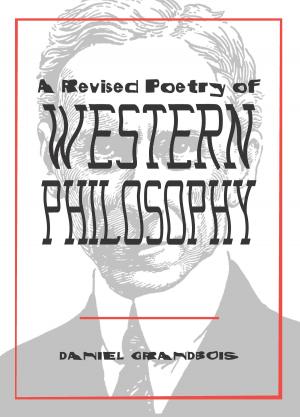| Author: | Alexander Goldstein | ISBN: | 9781311064196 |
| Publisher: | Alexander Goldstein | Publication: | December 23, 2015 |
| Imprint: | Smashwords Edition | Language: | English |
| Author: | Alexander Goldstein |
| ISBN: | 9781311064196 |
| Publisher: | Alexander Goldstein |
| Publication: | December 23, 2015 |
| Imprint: | Smashwords Edition |
| Language: | English |
As a sinologist, I have been asked many questions by people wanting to know time and again what Zen ('Chan' in Chinese) actually is. The problem is that it is not an easy task to describe this term. It is something that cannot be talked about nor expressed in written words. The moment language is used, we are no longer dealing with the true spirit of Zen, which is beyond all words. However, Zen cannot be left unexpressed. To introduce the reader to the world of Zen, there is no alternative but to resort to the use of language, the best alternative of which is poetry - the most 'precise' form of speech. This is one of the reasons why this ebook is comprised of 108 examples of the Zen way of realization to be submitted for the reader's consideration.
So, what is Zen? This question can be answered in a number of pathways, with each definition being correct within the context of each particular explanation. The word derives from the Sanskrit term "dhyana" to be better known to the West by the Japanese pronunciation, rather than Chinese 'Chan'; it is translated as "a quiet contemplation." (The graph 'meditation' consists of two main parts: one is for 'praying' represented by the heavenly number 3 and the earthly 2 placed vertically and horizontally; another is for 'a twofold unit' or 'an individual with a dual-tracking nature' or 'a bullet' which moves back and forth along the ruts and channels of Heaven-and-Earth.)
However, Zen has almost nothing to do with the practice of meditation (literally, the sitting meditation termed 'za-zen'). As is stated above, it is rather difficult to describe what Zen is by the aid of words. Some people say that it is mysterious experience, the realm of mystery, or simply mysticism. In fact, if Zen is mysterious experience, it means that it can be treated as 'the direct realization of original nature of the self.' If it is the realm of mystery, it is 'the substance of the true emptiness.' If it is mysticism, it is 'the cornerstone of all doctrines and teachings,' the source of all ideas, the philosophers' stone itself. To define what Zen is by going this way is quite an admissible acting, on paper, but it is absolutely inadequate as a means of transmitting the truth. In fact, Zen is not the experience, nor the realm, less still the "-ism" of a sort. Zen is only Zen, neither more nor less. For this reason, any attachment to Zen, regardless of how a dedicated or an expert the attachment might be, is still only ever attachment to shadows. Being "exact" in enlightened function is not the same as being "precise" through attachment to dress, terminology, a public ritual and a personal progression. Those attached to Zen carry with them the stench of Dharma (principle) contradiction and mistake the ideal world for the actual. Like a vicious whirlpool -- such people drag everyone into their orbit through impressing others with their certificates and experiences of 'gurus.' However, no matter how many times they have visited China or Japan and sat in a temple, as long as they have not realised the empty mind ground, they are simply placing a head upon head and mistaking the shadow it casts as real light.
As a sinologist, I have been asked many questions by people wanting to know time and again what Zen ('Chan' in Chinese) actually is. The problem is that it is not an easy task to describe this term. It is something that cannot be talked about nor expressed in written words. The moment language is used, we are no longer dealing with the true spirit of Zen, which is beyond all words. However, Zen cannot be left unexpressed. To introduce the reader to the world of Zen, there is no alternative but to resort to the use of language, the best alternative of which is poetry - the most 'precise' form of speech. This is one of the reasons why this ebook is comprised of 108 examples of the Zen way of realization to be submitted for the reader's consideration.
So, what is Zen? This question can be answered in a number of pathways, with each definition being correct within the context of each particular explanation. The word derives from the Sanskrit term "dhyana" to be better known to the West by the Japanese pronunciation, rather than Chinese 'Chan'; it is translated as "a quiet contemplation." (The graph 'meditation' consists of two main parts: one is for 'praying' represented by the heavenly number 3 and the earthly 2 placed vertically and horizontally; another is for 'a twofold unit' or 'an individual with a dual-tracking nature' or 'a bullet' which moves back and forth along the ruts and channels of Heaven-and-Earth.)
However, Zen has almost nothing to do with the practice of meditation (literally, the sitting meditation termed 'za-zen'). As is stated above, it is rather difficult to describe what Zen is by the aid of words. Some people say that it is mysterious experience, the realm of mystery, or simply mysticism. In fact, if Zen is mysterious experience, it means that it can be treated as 'the direct realization of original nature of the self.' If it is the realm of mystery, it is 'the substance of the true emptiness.' If it is mysticism, it is 'the cornerstone of all doctrines and teachings,' the source of all ideas, the philosophers' stone itself. To define what Zen is by going this way is quite an admissible acting, on paper, but it is absolutely inadequate as a means of transmitting the truth. In fact, Zen is not the experience, nor the realm, less still the "-ism" of a sort. Zen is only Zen, neither more nor less. For this reason, any attachment to Zen, regardless of how a dedicated or an expert the attachment might be, is still only ever attachment to shadows. Being "exact" in enlightened function is not the same as being "precise" through attachment to dress, terminology, a public ritual and a personal progression. Those attached to Zen carry with them the stench of Dharma (principle) contradiction and mistake the ideal world for the actual. Like a vicious whirlpool -- such people drag everyone into their orbit through impressing others with their certificates and experiences of 'gurus.' However, no matter how many times they have visited China or Japan and sat in a temple, as long as they have not realised the empty mind ground, they are simply placing a head upon head and mistaking the shadow it casts as real light.















